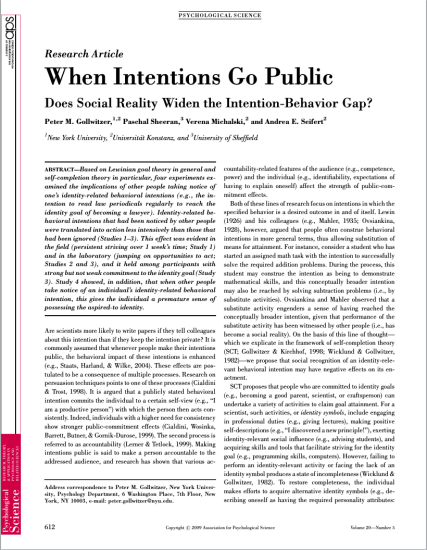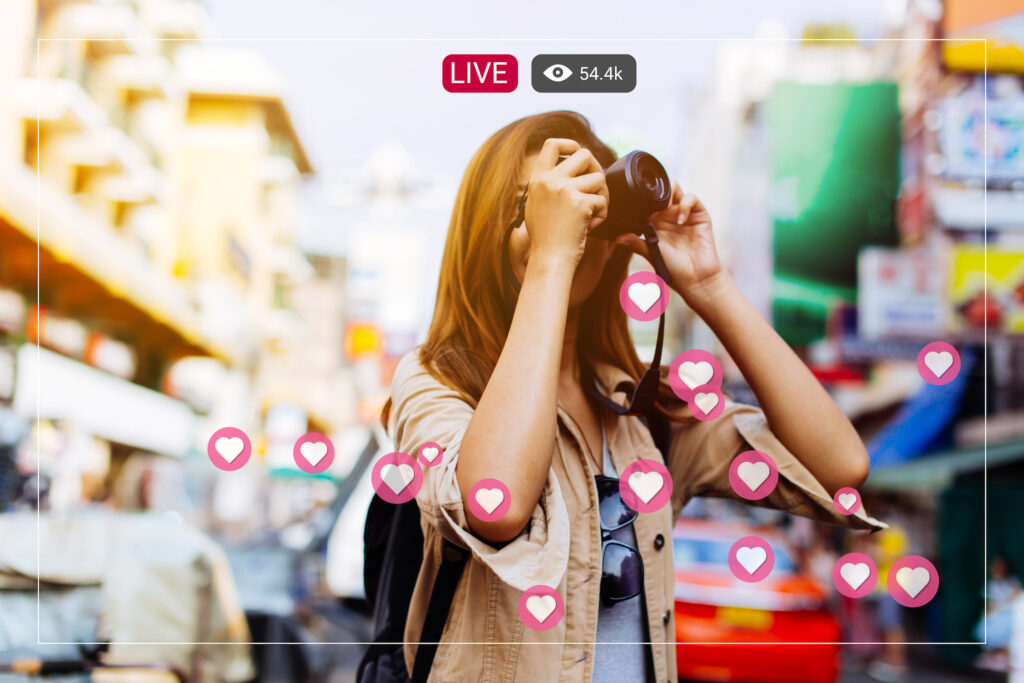
5 Secrets of Women who Always Stay Fit
Reading Time: 5 minutes 5 Secrets of Women who Always Stay Fit These women seem to have it all. They always stay fit, they get enough sleep, they have
Advice on how to set and achieve your goals has become a business. Since the pandemic there has been an explosion of so-called gurus willing to coach you (often for exorbitant fees) on your mindset, promising that your whole life will change if you learn one or two secret ingredients to add to the recipe of goal-setting.
A quick search online for some advice and basic goal-setting guidelines turns up a dozen quick-click results: 3 steps of goal setting, 7 steps of goal setting, 10 steps of goal setting, the 3 R’s of goal setting, the 7 F’s of goal setting…the list goes on.
Most of these reduce “taking action” or “staying motivated” to a single step, overlooking or perhaps ignoring the fact that it’s the implementation phase of goal-setting that trips most of us up.
And the one thing that most of us do, especially in the age of social media accolades, that ultimately prevents us from staying on track and achieving our goals, is sharing them or making them public.
Some argue that publicizing a goal is more likely to keep us accountable for them. But it turns out this might only be the case when the goal is performance of a certain activity itself. For example, if your goal is to workout five days out of the week, the only way to achieve that goal is to actually exercise five days out of the week. Sharing this intention could be a great way to keep yourself accountable for doing it.
But if the goal is conceptually broader and more identity-based, making it public actually could have the opposite effect. So if you state that your goal is to exercise five days out of the week, but the conceptually broader goal is actually that you want to be a person with a fit lifestyle, there are lots of other ways to demonstrate being a person with a fit lifestyle aside from going to the gym five days out of the week.

Peter Gollwitzer refers to these goal-attaining activities as “identity symbols” in his 2009 paper, When Intentions Go Public. He suggested that when a goal is identity-based, a person can essentially flip through a series of “identity symbols” to reach a state of completeness where the individual feels the goal has been achieved. He says that efforts to bolster self-esteem and affirm general self-integrity are not enough to reach this state of completeness. A person has to actually acquire specific identity symbols.
So in our fit lifestyle example, identity symbols could expand to include drinking a green juice every day, journaling, or establishing a specific healthy morning routine. Doing any of these things should contribute to the feeling of completeness and ultimately achieving the goal of living a more fit lifestyle.
But what Gollwitzer also observed and ultimately designed his study to demonstrate was that, “Positive self-descriptions made in public qualify as powerful identity symbols, and having an audience for behavioral intentions that specify the successful performance of an identity-relevant activity should have the same symbolic impact. . .In other words, people should be less likely to translate their identity-relevant behavioral intentions into action when other people have taken notice of those intentions.”
It’s astonishing that this paper was published in 2009, long before the popularity of social apps like Instagram, TikTok, and YouTube, because the concept translates so well. Anyone with a smartphone can quickly make a positive self-description public by snapping a few selfies and uploading them with any caption they like to show the world who they want to be perceived as. Having an audience for your behavioral intentions is no longer limited to your immediate or extended social circles; you literally have the potential for every Instagram user in the world to be part of this “audience” taking notice of your intentions.
So why is this a problem?
In a 2018 article in Psychology Today, Marwa Azab wrote, “The more others admire our goals, the more dopamine rush we get, and the less likely we are to execute the future necessary actions to implement them.” She cited Gollwitzer’s 2009 article and also wrote that “publicizing our intention to succeed gives us a ‘premature sense of completeness’,” which basically tricks the brain into thinking the goal has been achieved and inhibits the motivational circuitry related to further pursuit of the goal.
So, to recap, if your goal is related to your identity and there are multiple paths to achieving it, it’s better to keep quiet about it so you don’t give yourself a false sense of having achieved the goal when all you’ve really done is gather accolades for saying that you WANT to achieve something.
This made me wonder…
For instance, if we only set goals that can be achieved via a single pathway, and we consistently achieve them, could that ultimately lead to achievement of an identity-related goal?
If identity-related goals are problematic because they can be achieved through multiple pathways, many of which don’t even require us to actually DO anything to gain that sense of achievement, what if you down-selected specific activity-based pathways in support of the conceptually broader goal and set out to achieve each of them?
If you go to the gym 5 days a week, drink green juice daily, get into the habit of journaling and establish a morning routine, do you automatically achieve the identity-based goal of becoming someone who leads a fit lifestyle?
On paper, perhaps, but is it possible that we NEED an audience to acknowledge that we’ve fundamentally altered our identity for it to be true?
Or can it still be enough if we ourselves believe we’ve achieved an identity shift?
I’m going to leave that question open for now because I think it’s pretty powerful, and instead I’m going to step back a minute to look more closely at the concept of identity-related goals vs action-based ones, and how going public could be the one thing that’s preventing you from making progress. And to that end, I have a story.
Remember at the start of this post how I mentioned all of the coaches that popped up during the pandemic to help you “achieve your goals” and how “mindset” became more of a buzzword than ever? There are hundreds, if not thousands, of programs and groups that gather weekly in some online space to re-focus on goals, “get into the right mindset” or have “mindset check-ins”. I personally have been in about half a dozen of these since 2020 and ultimately left every single one of them because of what we’re here to discuss today.
I’ve seen this “premature sense of completeness” as it relates to goal-setting in action. And in this context, I call it the pep-rally effect.
When you get a group of people together who are all motivated toward a common goal, or even if it’s a group of individuals pursuing their their own achievements, what happens is this weekly live-stream check-in, motivation-boosting pep rally yields zero action. Everyone on those calls leaves feeling like they’ve put in the work and progress is being made. But when months go by and your business hasn’t grown, or you haven’t picked up any new clients, or your website still isn’t finished, you start to recognize that the dopamine release from getting hyped up for an hour a week is exactly the same as the release you would get from actually hitting those milestones. But since you’re getting that sensation from your weekly pep rally, you have no motivation to go out and take real action to move things along.
Between this and the validation we get from publicizing our goals and every minute alteration we make in our daily lives in pursuit of achieving a new identity, it’s really no wonder that assistance with how to achieve your goals has become such a lucrative business.
So once you’re aware of this dopamine trap, and how it might be counteracting all of the positive steps you think you’re taking, how can you avoid it?
The first thing that helps is to identify what kind of goal you’ve set: Is it results-based, or identity- based? Think back to our hit-the-gym 5 days per week example. Is the goal just to do the thing? Or is there a broader concept you actually want to achieve?
Assuming that most of us are actually chasing identity symbols and a larger identity shift, the second thing that helps sort of has two parts. Part one is getting clarity on our vision. We’ve all heard about visualizing our end game and deciding what that dream life looks like. Envision who we want to be, what that person does, how they spend their day, what choices they make, etc. and then set out to do those things. The problem comes in part two, which I don’t think most of us even realize we’re doing. And this is where we start seeking those alternative pathways to make that vision a reality. Why do we do this?
When we post elements of our vision to social media and get the validation we need, that “premature sense of completeness” if you will, and we temporarily feel like we’re on the right track. But when that feeling eventually wears off and we realize we’re not actually making the progress we thought we were, we go looking for other ways to make it happen.
And these ideas often come from comparing what we’re doing to what other people are doing.
Social media creates a huge problem here. It’s not only a source of endless distraction, it’s also a source of endless ways we can trick ourselves into thinking we’ve achieved a goal when we haven’t.

People say to smatter your vision boards, Pinterest boards, and Instagram feeds with motivational content that will keep you on track toward your goals. But I am suggesting that the opposite approach would be more beneficial. Decide what tactics you want to implement to create the lifestyle shift you’re after, and stick to them by not publicizing them and avoiding self-comparison. Don’t keep going back to the drawing board every time you have a setback or feel like you’re not getting enough outside attention for the work you’re putting in. Progress is never linear, but if you only take a few steps down a path before backtracking to your starting point and picking a different path instead, and you do this over and over and over, you’re never really going anywhere.
The third issue with these identity-based goals is how to know when we’ve met them. This is related to the vision-boarding. There are no hard milestones to meet; it’s more of a “feeling” we have about ourselves. But if we just keep plodding along waiting until we “feel” like we’ve met our goals, we’re probably never going to actually get there. This dumps us back into the trap of seeking new and different ways to motivate ourselves with new ideas and empty applause.
This returns us to the question of whether we are capable of believing we’ve achieved a powerful identity shift even if others don’t acknowledge or validate it.
Ultimately, I believe it HAS to be enough that we feel it and believe it for ourselves. This has the potential to blur over into working on core beliefs we hold about ourselves, and our ability to dismantle and replace those beliefs without input from external sources, but I think it fundamentally comes down to what living your healthiest life looks like FOR YOU, and overcoming the negative self-comparisons we make that convince us we still haven’t achieved our goals even when we believe that we have.

Reading Time: 5 minutes 5 Secrets of Women who Always Stay Fit These women seem to have it all. They always stay fit, they get enough sleep, they have

Reading Time: 4 minutes Why Can’t I Lose Weight No Matter What i do? I have a better question for you. Instead of asking Why can’t I lose weight,

Reading Time: 8 minutes Diet Culture in Fitness Industry Marketing is Brainwashing You In season 2 of the Fixing Fitness with Kelly podcast I touched on the newly mainstream